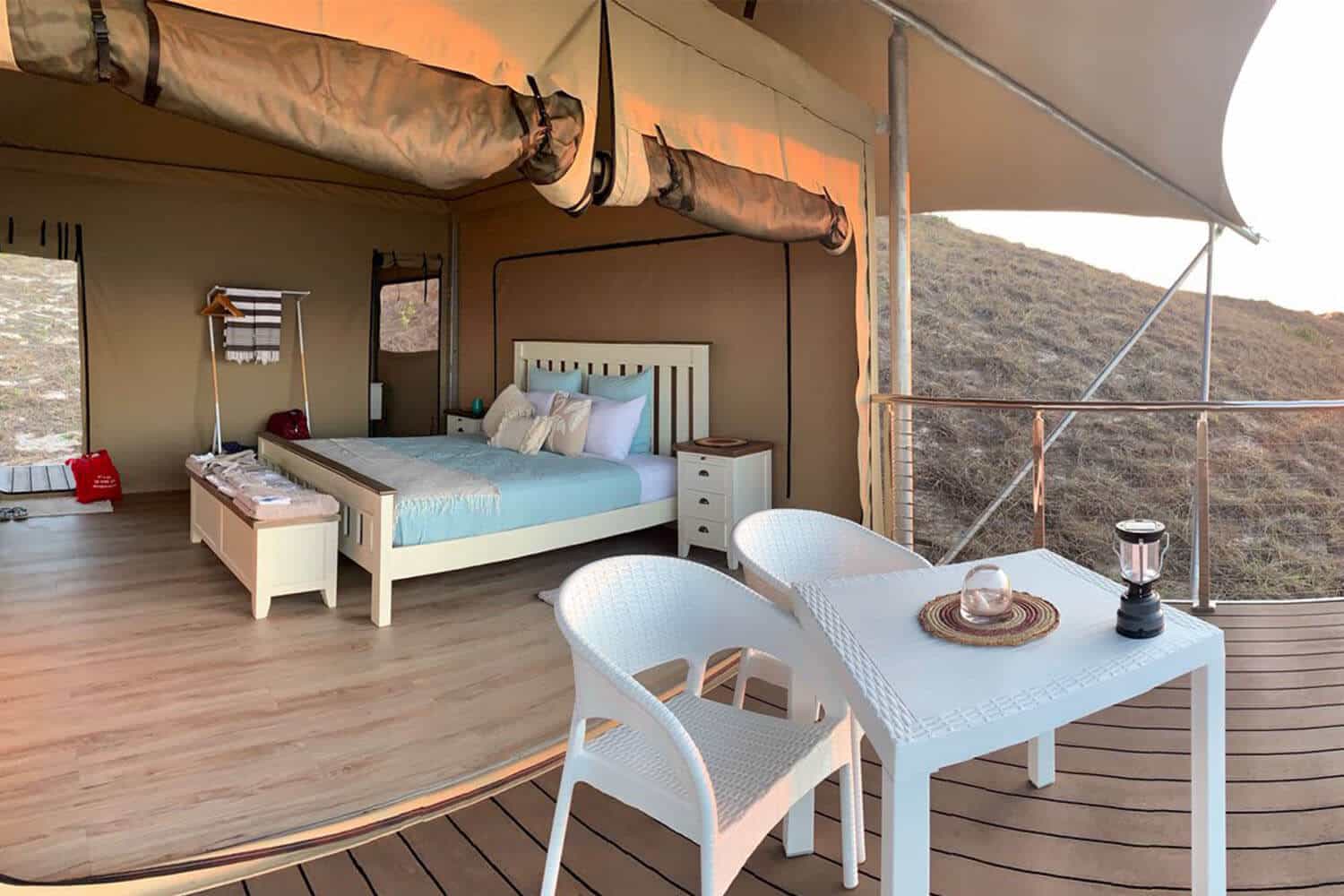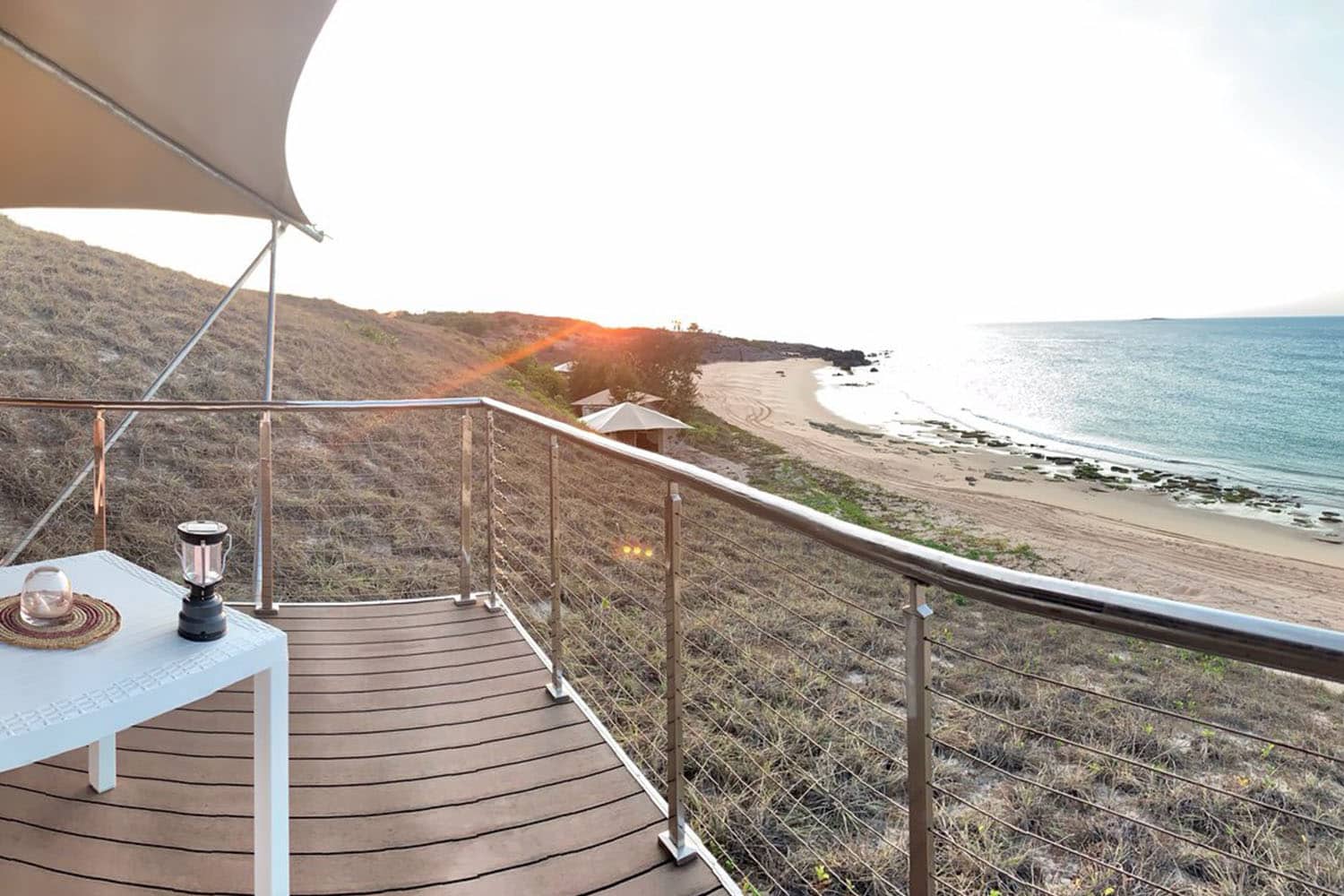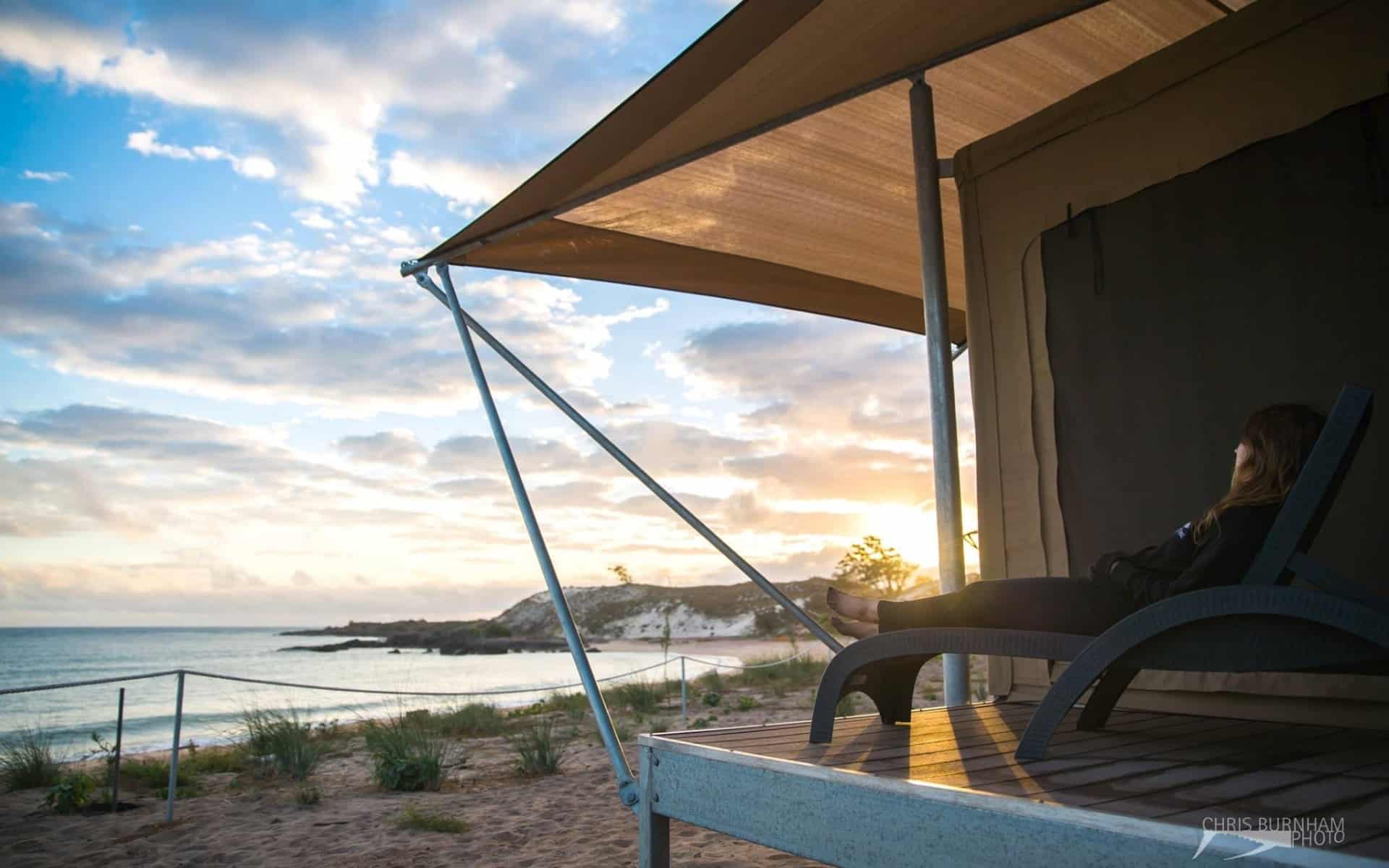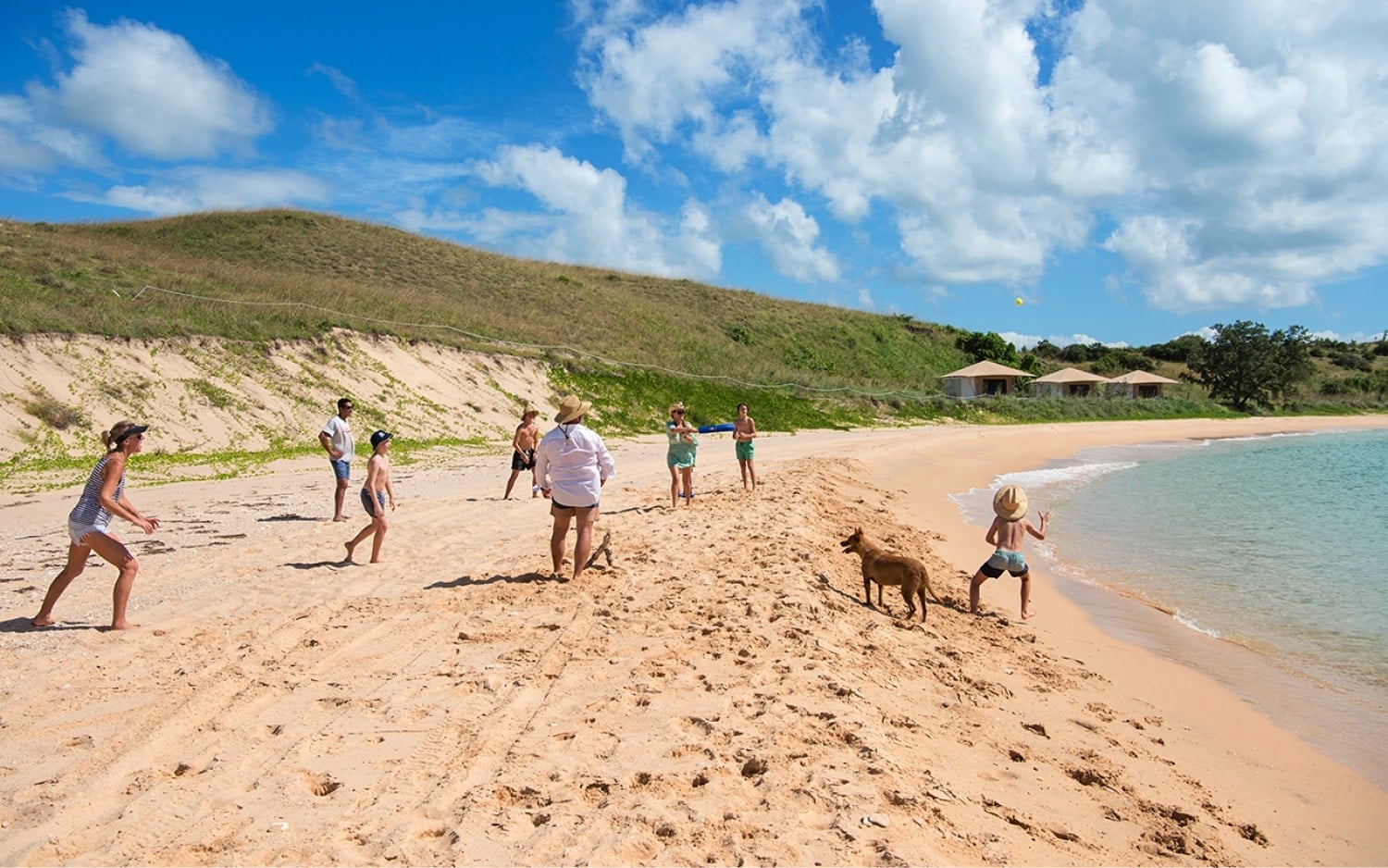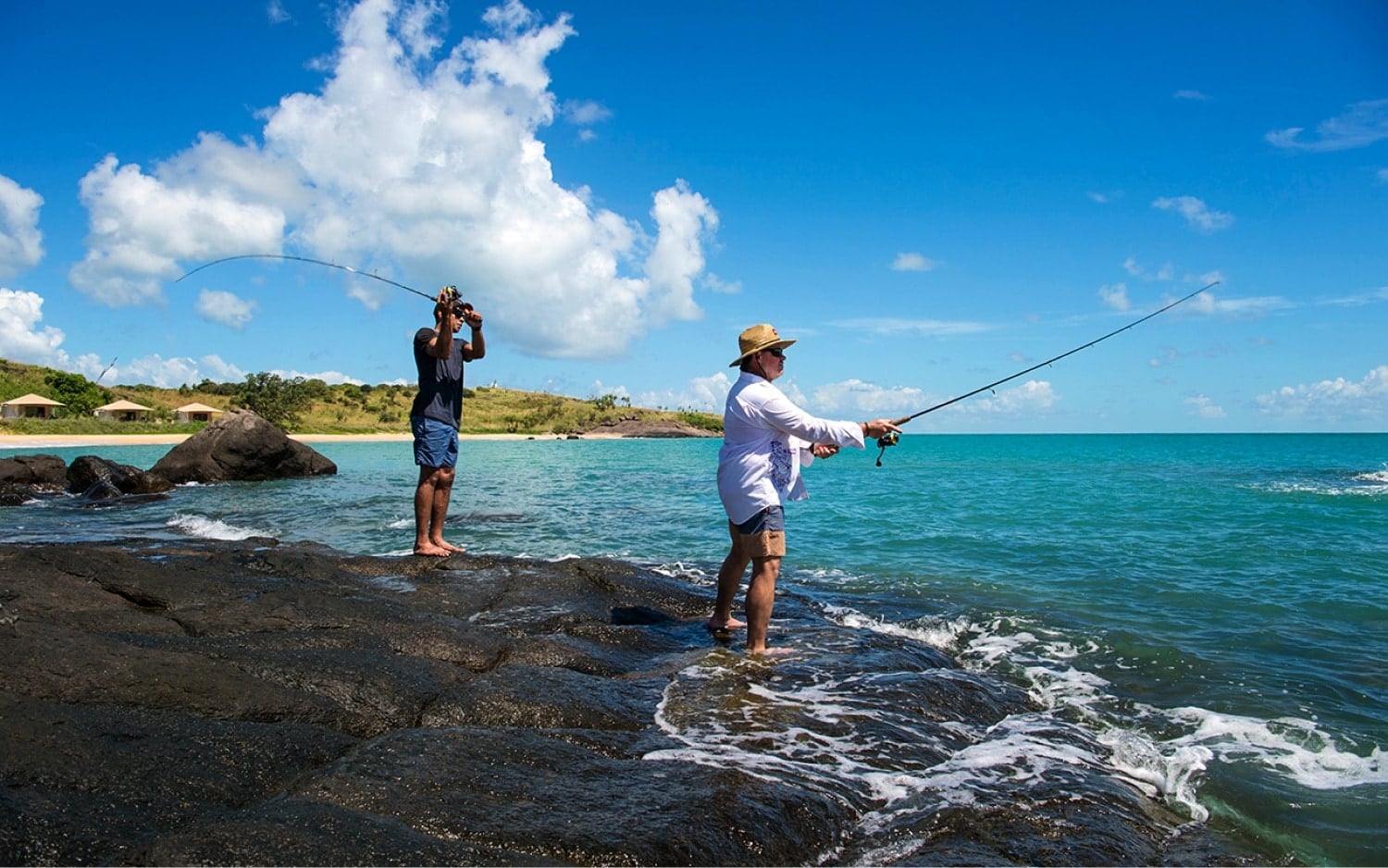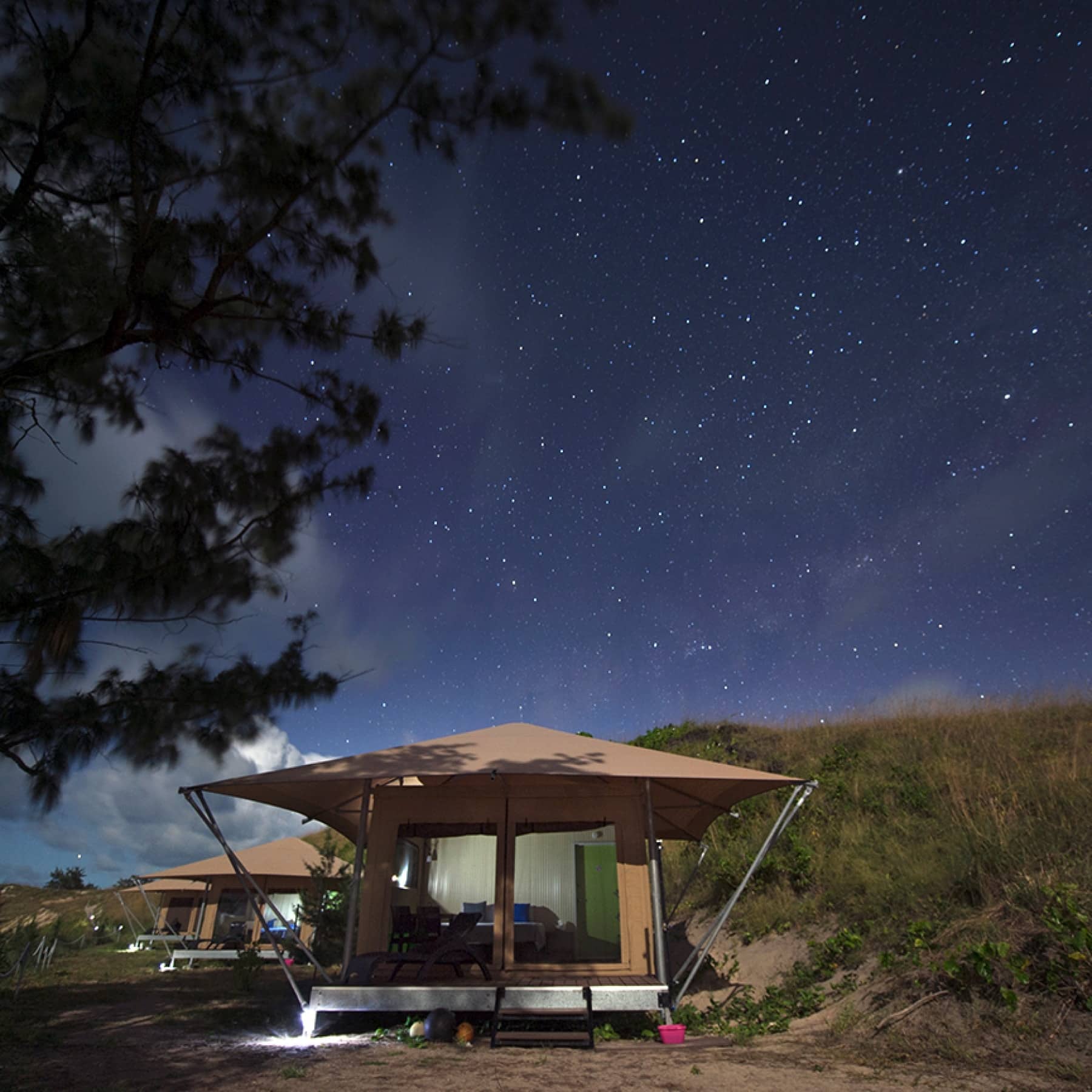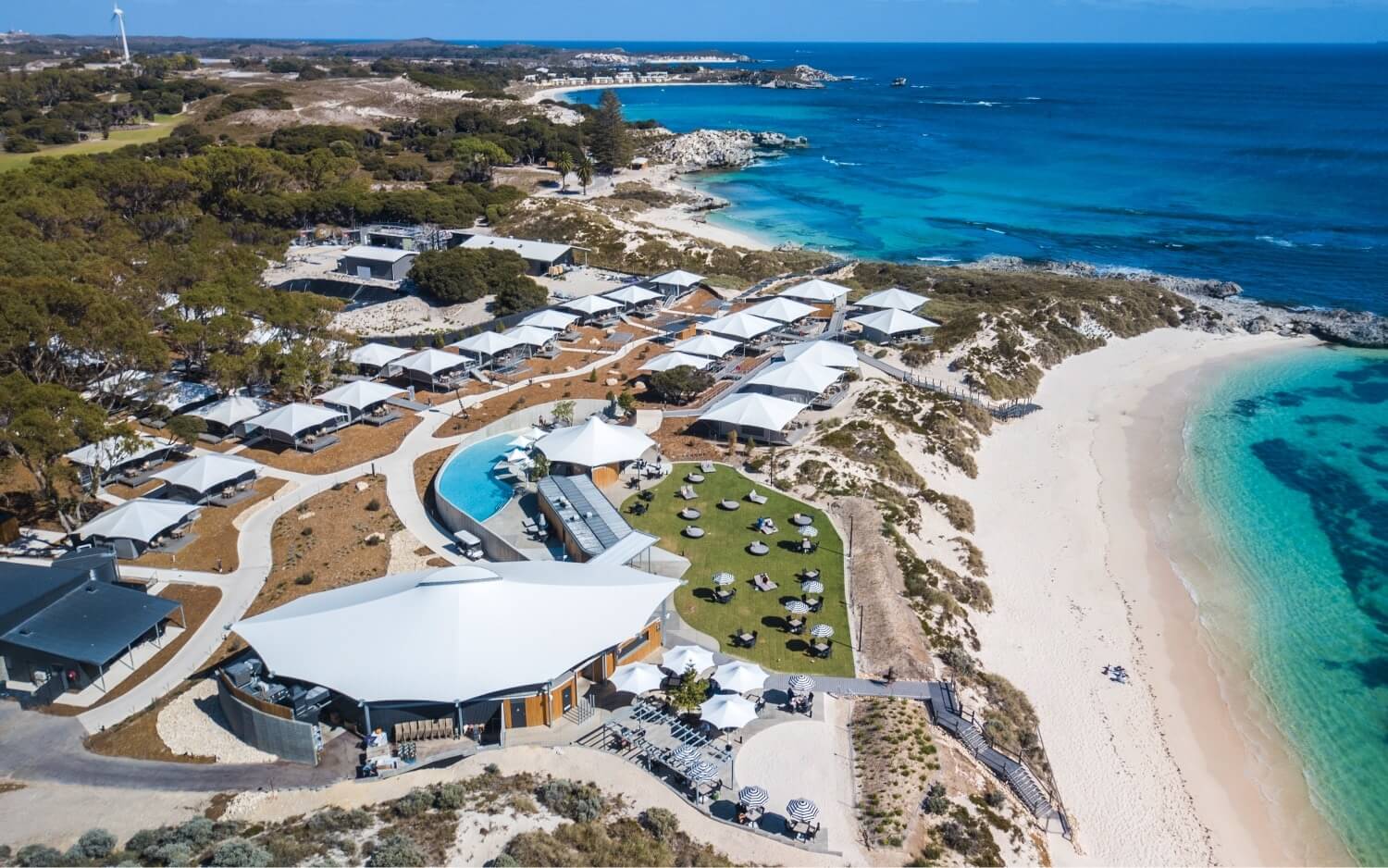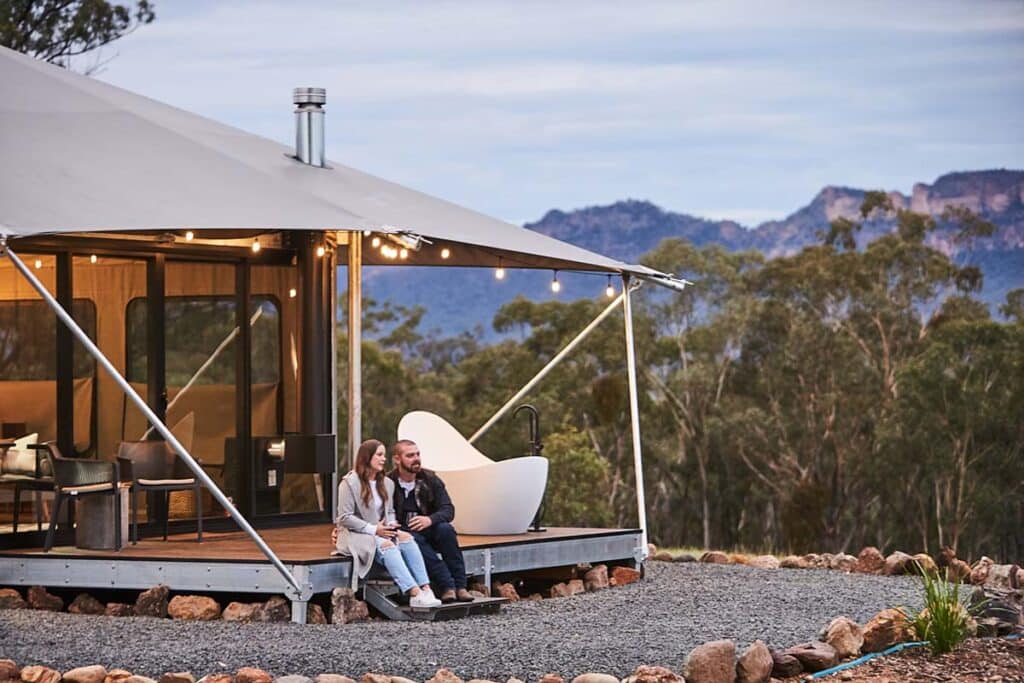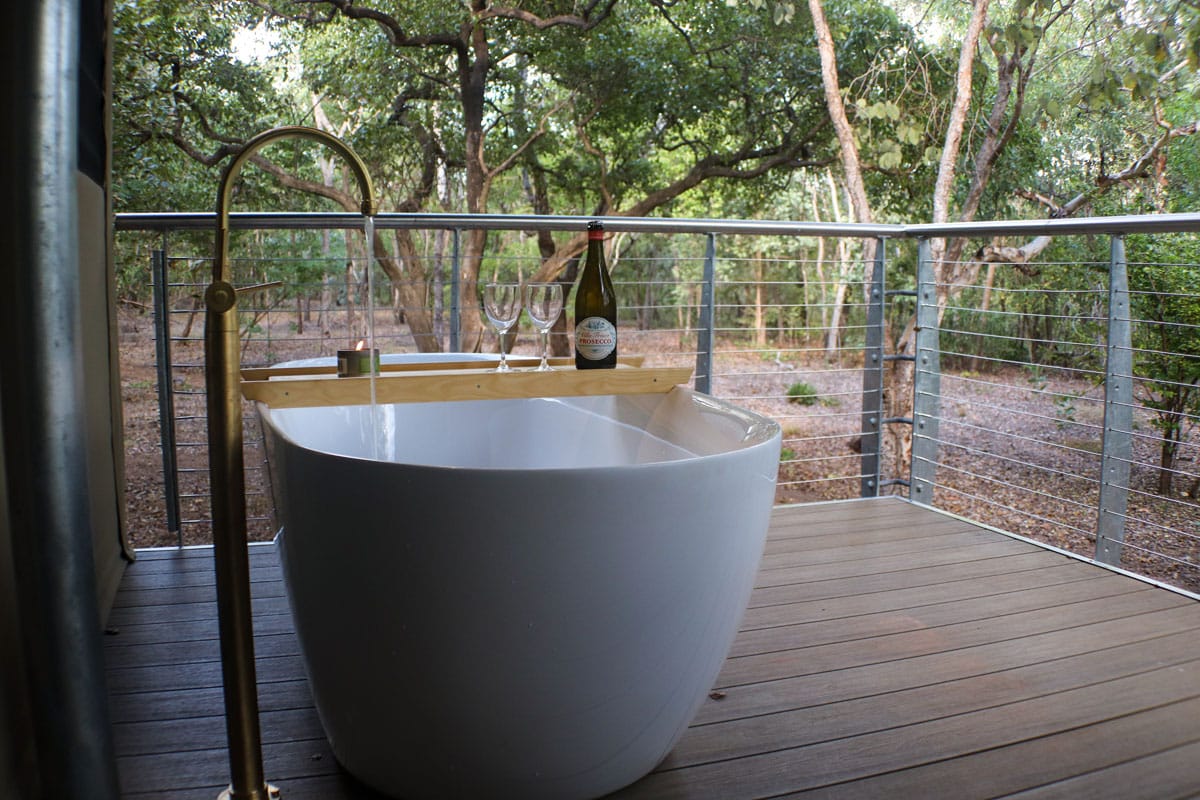The Indigenous-owned resort offering visitors a taste of Aboriginal Australia
Article: SBS News
By Sandra Fulloon
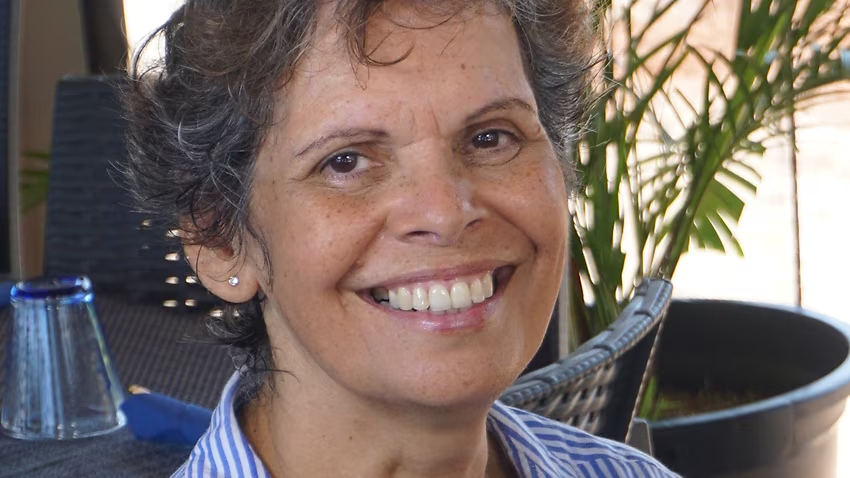
Helen Martin has transformed a beach fishing camp into an eco resort in the Northern Territory. Source: Tara Toohill
Banubanu is on an island about an hour’s boat ride from Gove, in Northeast Arnhem Land. It’s run by husband and wife team Helen Martin and Trevor Hosie and has grown from a cosy fishing camp into a luxurious retreat.
“This has been my home for the last 15 years, there’s a tranquility here and it is very spiritual. We’re on Yolngu land. It’s a beautiful place, there’s something about it,” Ms Martin explained.
The local Yolngu community has granted the couple a long lease on a north facing cove.
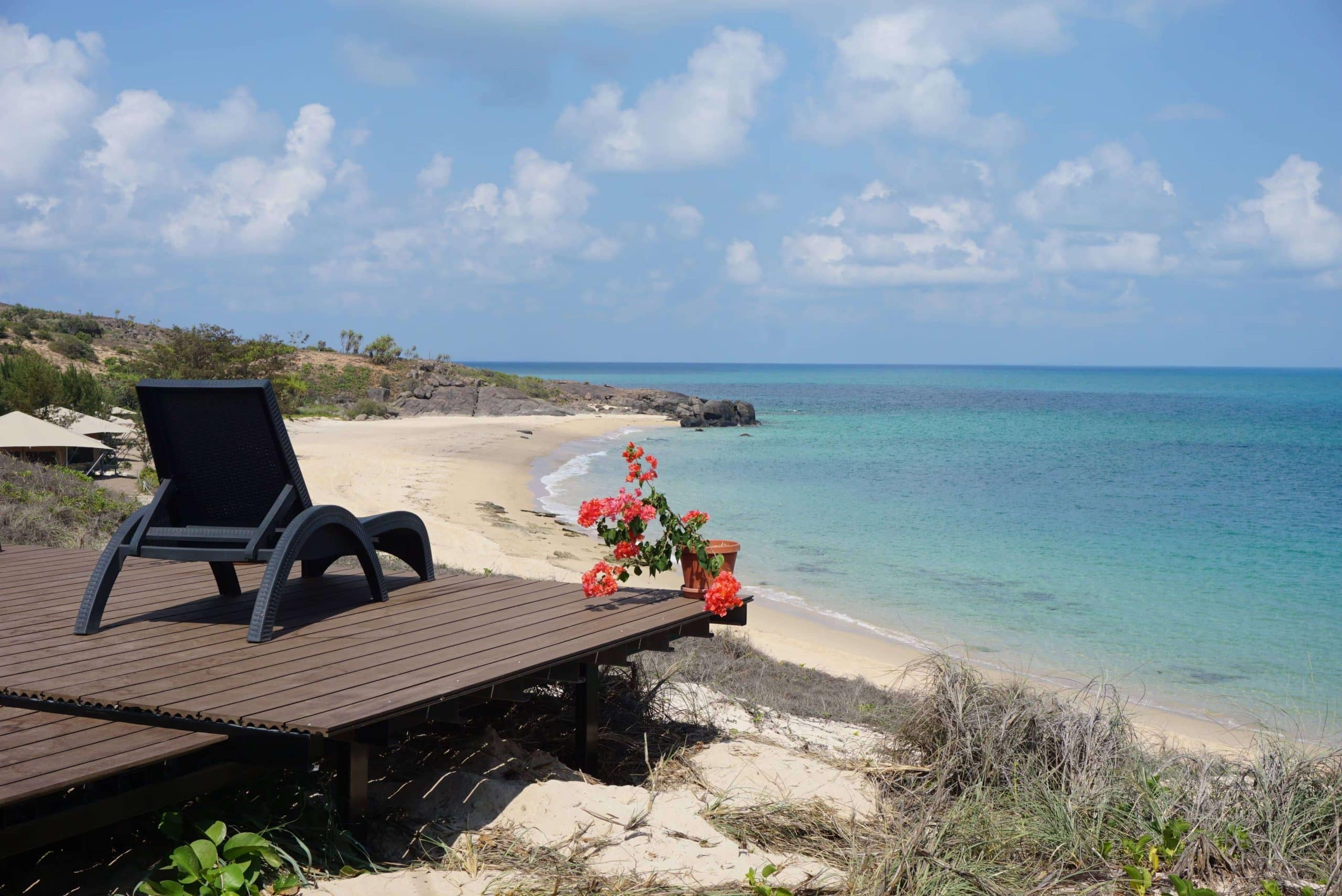
Banubanu is on a sheltered, north-facing beach.
Source: Tara Toohill
Banubanu recently expanded with a new open air restaurant and bar, with a swimming pool and luxury beachfront cottages built at a cost of more than one million dollars.
“It’s an environment you can relax into and enjoy, and you’ve got it all to yourself,” Ms Martin explained taking a break from greeting lunch guests.
“Visitors can grab a book and lie on the sun lounge, and from their rooms they see western bay and it’s stunning.”
The Arrernte woman from Central Australia sits on four boards in the Northern Territory and is passionate about growing Aboriginal tourism.
Ms Martin says Banubanu helps visitors connect with Aboriginal Australia. Banubanu hires workers from the Bremer Island Indigenous community and displays their arts and crafts including hand-painted shells and hand-woven baskets.
“We are using local bush foods in the menu including ‘Pigface’ a succulent plant which grows freely on coastal sand dunes.
Pigface Carpobrotus glaucescens is widely used by Indigenous people for medicinal purposes, with the leaves applied like aloe vera to lessen stings and burns on the skin. Every part of the plant is edible either raw or cooked.
“We use Pigface in our salt and pepper calamari and it adds a crunchy texture,” Ms Martin explained.
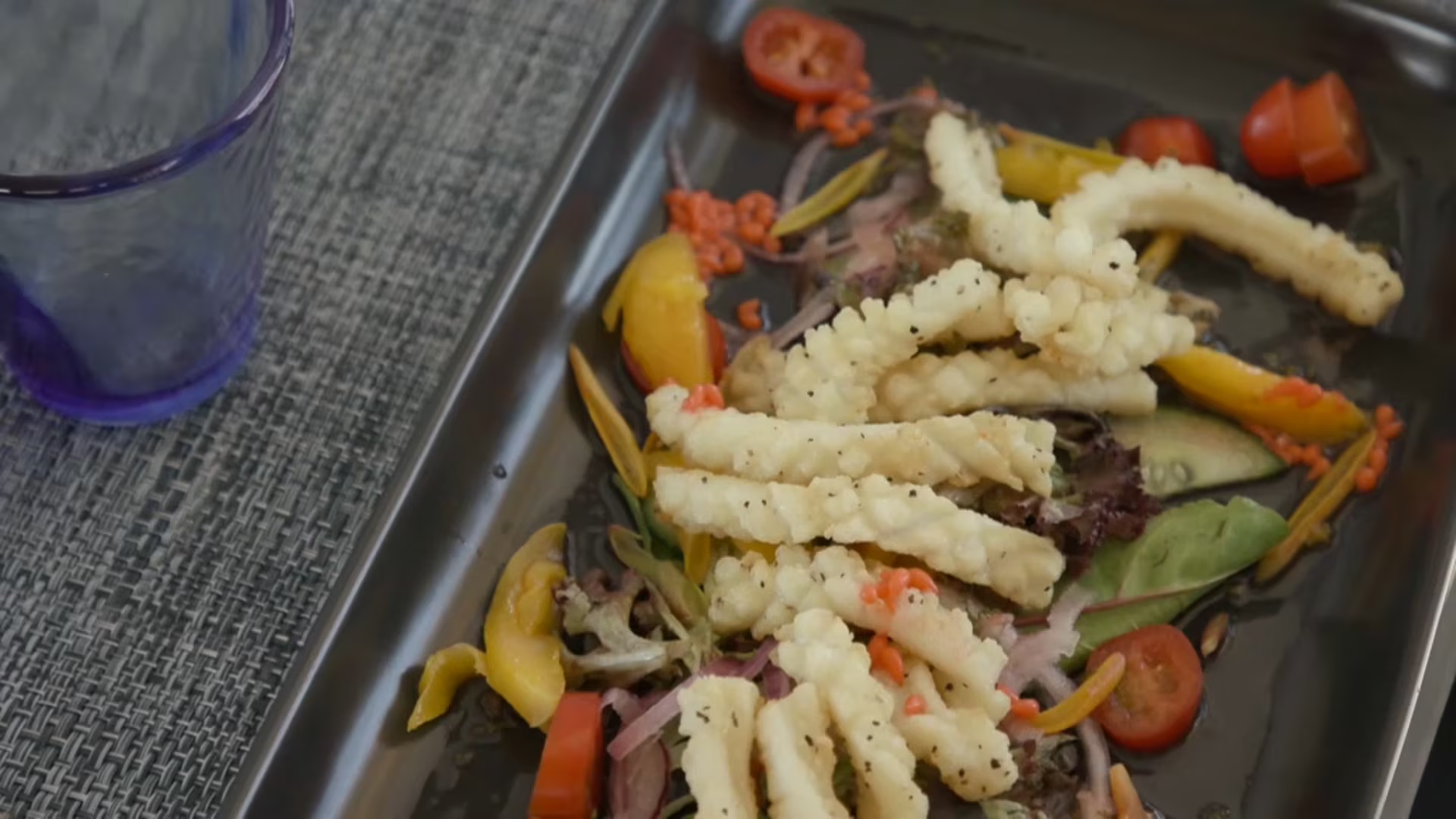
Banubanu uses bush foods in its menu, including calamari with pigface.
Source: SBS
“To be able to feel, eat, see and taste it and see what’s happening on country – in the arts, weaving and fishing – is very enticing to the tourism sector,” said Director of Business Solutions at Indigenous Business Australia Stella de Cos.
“When they [visitors] go home they will have had an experience no-one else will have had.”
“It’s setting a trend and leading the way to show that our mob can be very proud of our culture, and show it to the world and the world will love it,” Ms de Cos added.
Helen Martin said IBA’s advice and financial support was crucial while building the new retreat.
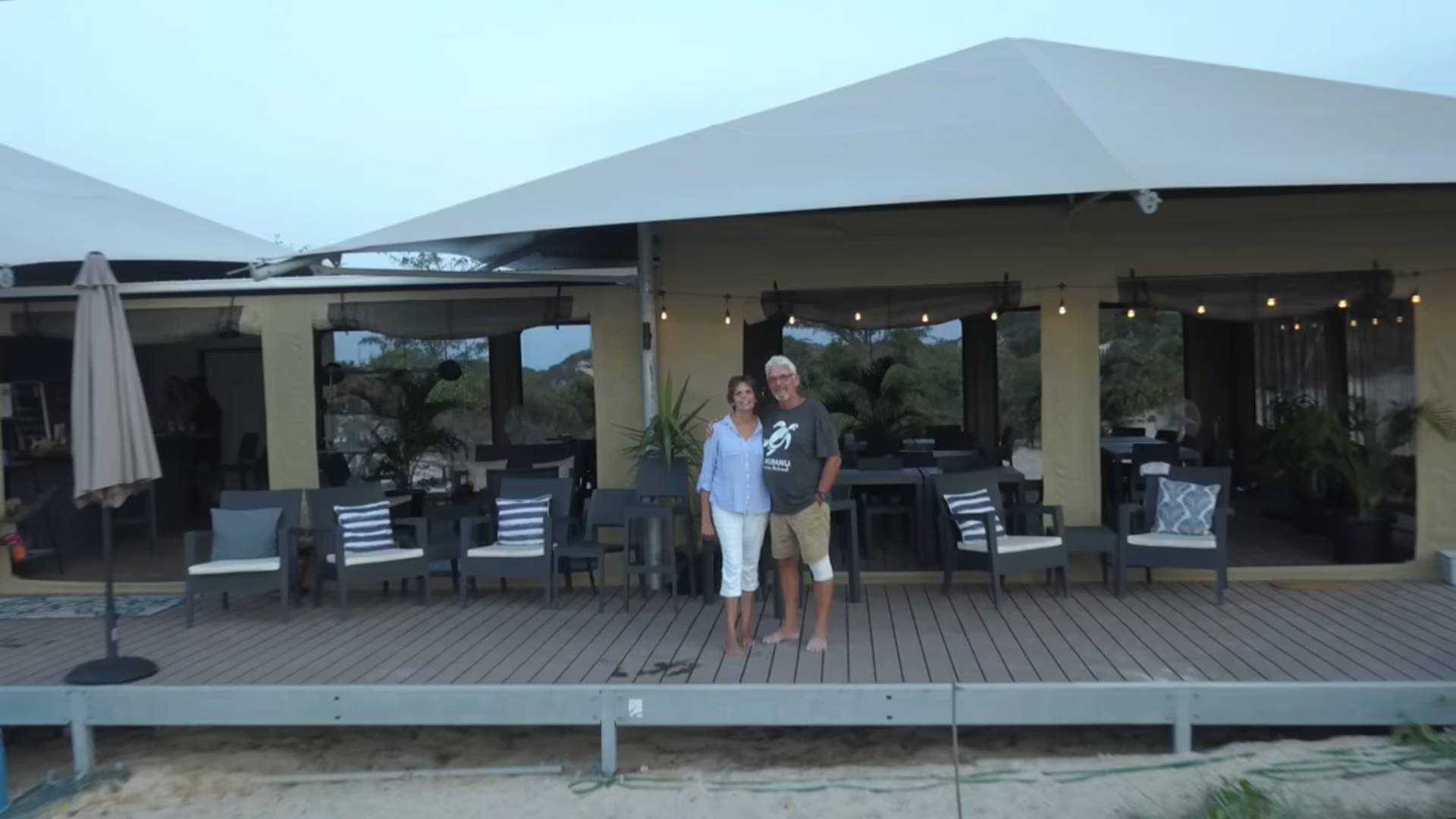
Helen Martin and Trevor Hosie at the new Banubanu restaurant and bar.
Source: SBS
“As a small business and operating on Aboriginal land getting finance from banks was so hard,” she explained.
“The only way we could do it was thru IBA, and they have supported us so much.”
“IBA helped us with a startup package, and the grant and in that package helped us work out how to grow and develop the business.”
The couple arrived at Bremer Island in 2005, and set up a fishing camp serving lunches and dinners, and gradually added tent accommodation.
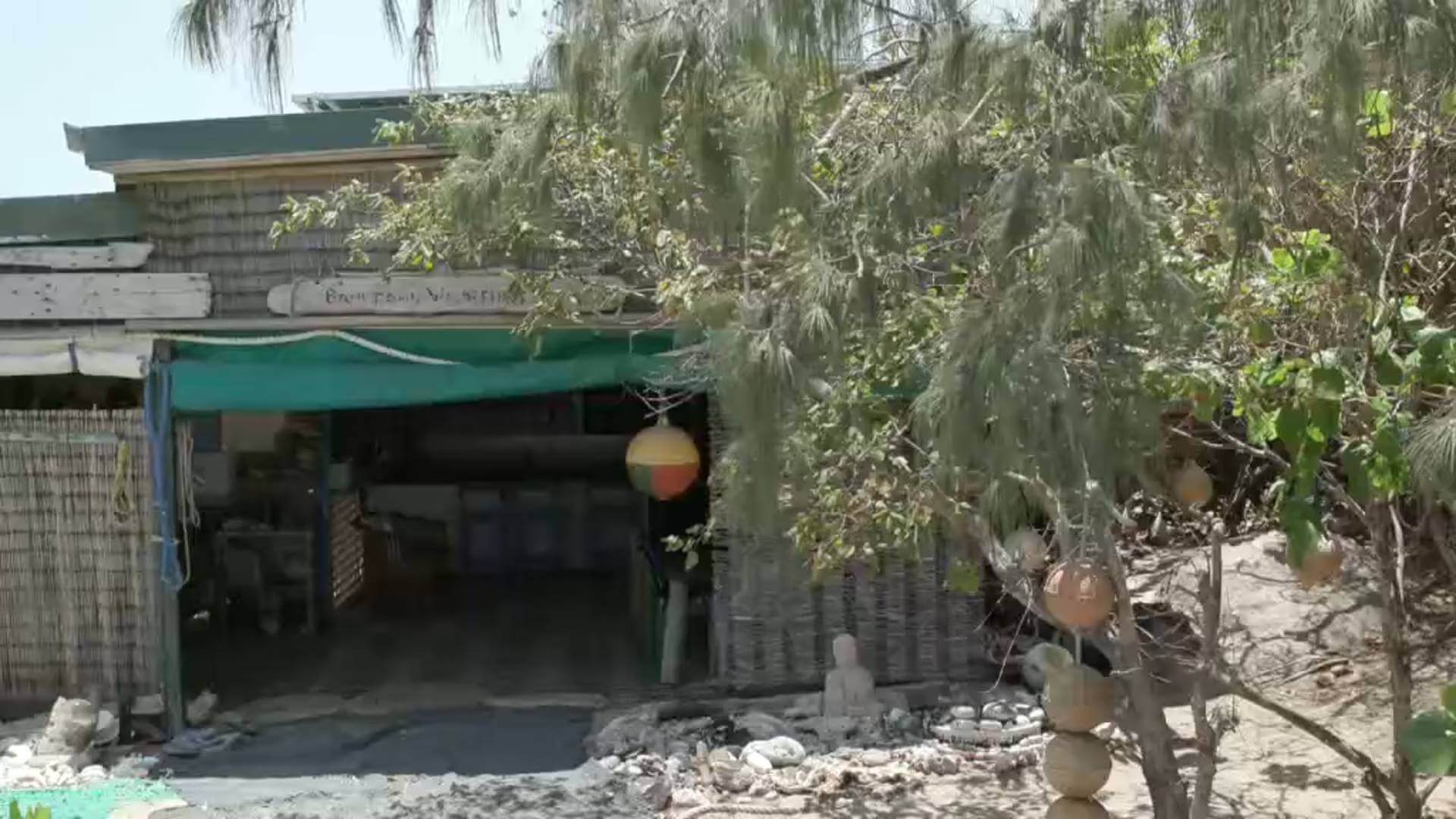
Banubanu started as a fishing camp in 2005.
Source: SBS
“Initially, we had a small business and a lifestyle business, and this has been very slow growth as far as business goes,” Ms Martin explained.
Banubanu now attracts overnight visitors during the peak season, and during the low (wet) season locals are invited for day trips by boat from Gove to lunch at the restaurant with sweeping ocean views.
There’s also a small air strip on Bremer Island for light aircraft to land, bringing guests from interstate.
Banubanu limits its staying guests to 12 at a time, in order to have minimal impact on the environment.
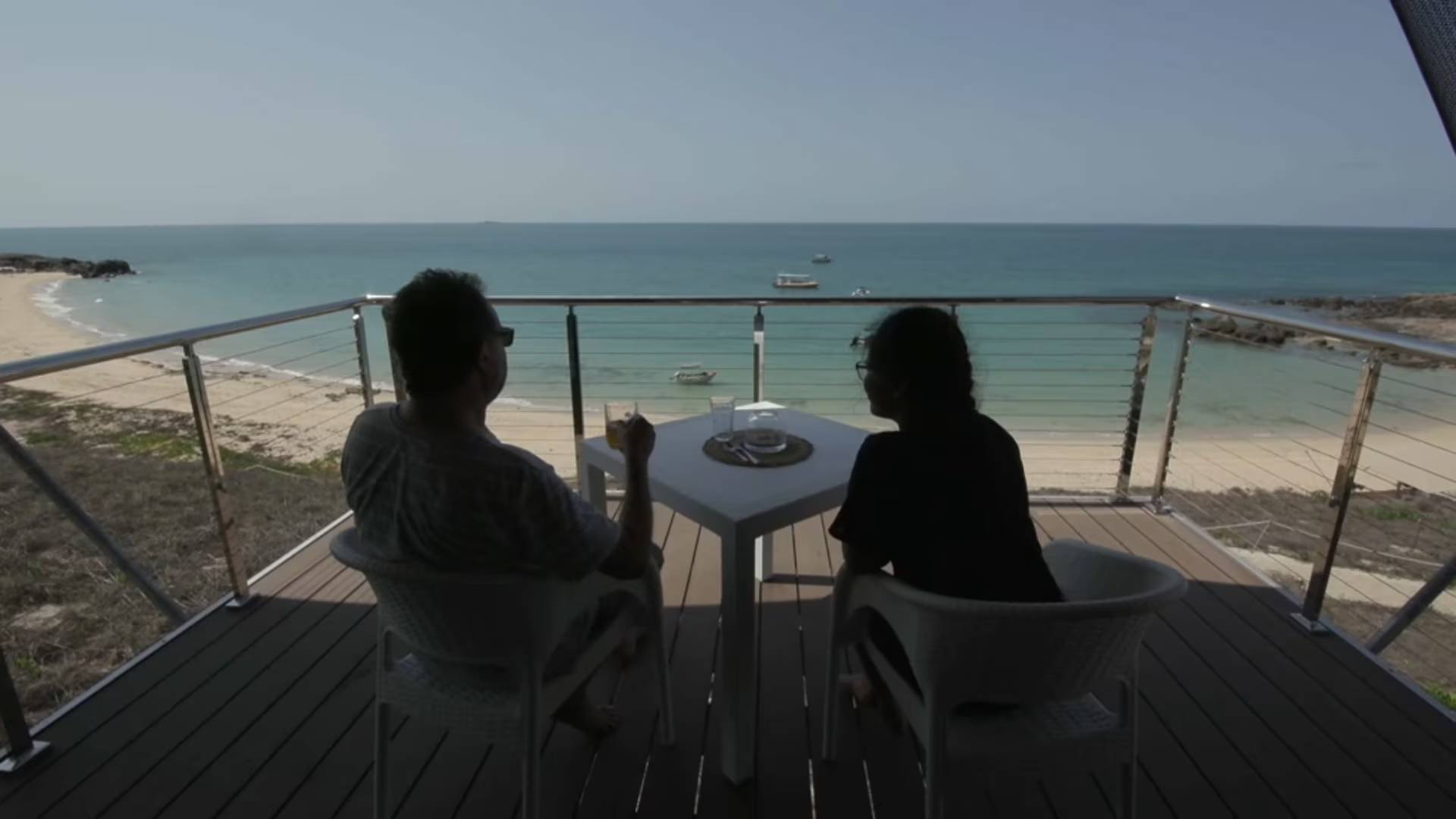
Guest numbers are restricted to help preserve the environment.
Source: SBS
Caring for the island is part of Helen’s commitment to the local Yolngu community.
However, protecting this island paradise from plastic pollution isn’t easy.
Shampoo bottles, ghost nets and fishing debris washes up on nearby beaches, and threatens local wildlife including endangered turtle species which climb the beaches to lay eggs.
“We have four turtle species and they are all endangered. We are very privileged that they are still coming onto the island and nesting, and it’s great for tourists to come onto the island and see them in their natural environment,” Helen Martin explained.
“The females come up the beach nesting and the hatchlings try to get back down.
“And we are seeing some turtles get caught up in nets trying to make their way through the rubbish.
“One day while walking on the beach I found a huge turtle flipped over on its back. I don’t know how many days it was like that or how it had survived just trying to make its way through the rubbish.”
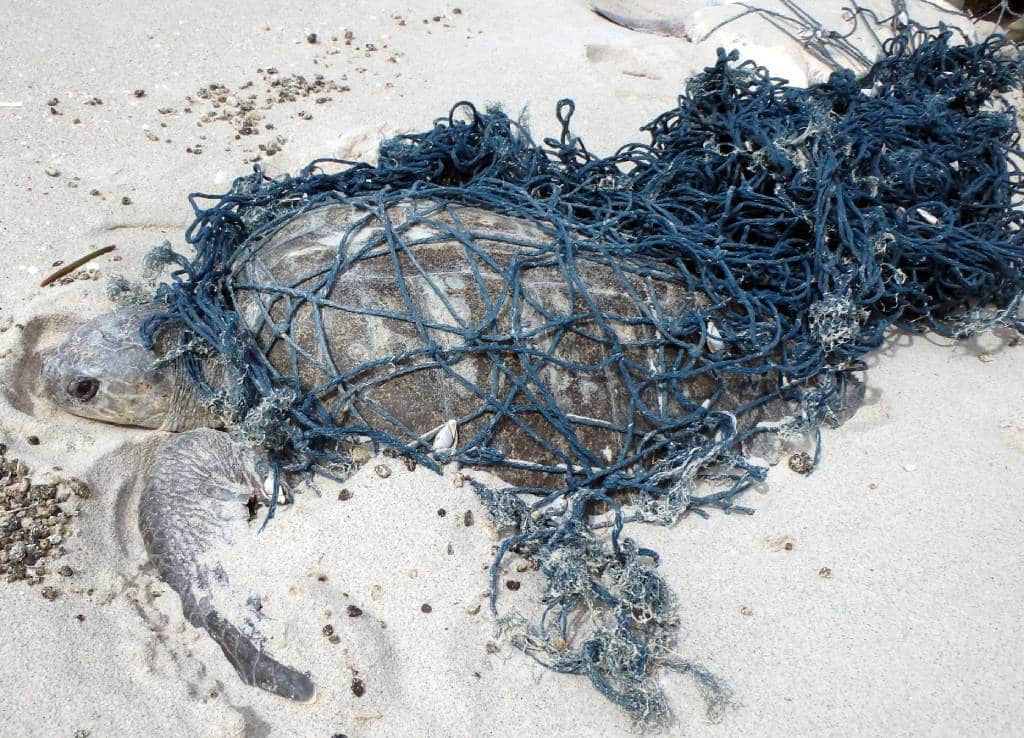
Sea turtles can become tangled in fishing nets.
Source: Dhimurru Aboriginal Corporation
“How can we fix this problem? We can’t because every high tide is dropping more and more rubbish and it’s beyond us, it’s upsetting, what do you do?”
“It’s getting to the point now where it’s uncontrollable. We just don’t know how we’re going to manage the whole situation, it’s quite overwhelming,” Helen Martin explained.
“We are trying to tackle this situation by working with the local Dhimurru land management group. They come across from the mainland and help to clean up the beaches with us,” Ms Martin explained.
Dhimurru Aboriginal Corporation is working to protect 70 kilometres of coastline along the Gove Peninsula within the Gulf of Carpentaria from pollution. They estimate between 800 kilos to a tonne of plastic per kilometre along their once pristine coastline.
In a recent report, a clean sweep of marine debris from Wanuwuy (Cape Arnhem) at Nhulunbuy in the Northern Territory netted two and a half thousand kilograms of rubbish. Of this, almost 600 kilograms was broken plastic, and almost 500 kilograms of rope.
Wanuwuy (Cape Arnhem) is an important foraging and nesting site for six of the world’s seven species of marine sea turtles. It is also an area of great cultural significance with over 50 registered sacred sites on the Wanuwuy peninsula, the report says.
Helen Martin says volun-tourism is one way to help manage the influx of marine debris. Another idea is to invite an artist in residence to make installations using the waste materials.
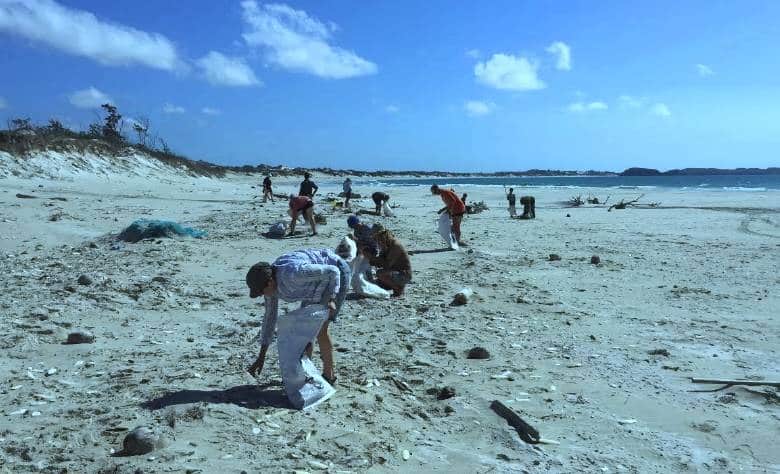
Volunteers help to clean up beaches in Northeast Arnhem Land.
Source: Dhimurru Aboriginal Corporation
Ms Martin and Mr Hosie will do all they can to protect the natural environment.
“This has been a long journey for myself and my husband. It has taken us 15 years and eventually we got a 25 year land use agreement on Aboriginal land and that’s important, because now we can grow and take it to the next level.”
“When we first started off 15 years ago I would never have imagined we would be sitting here today.
“We are so proud to have a restaurant that seats 30-40 people for lunch. We have a penthouse cottage, and five beach front rooms.
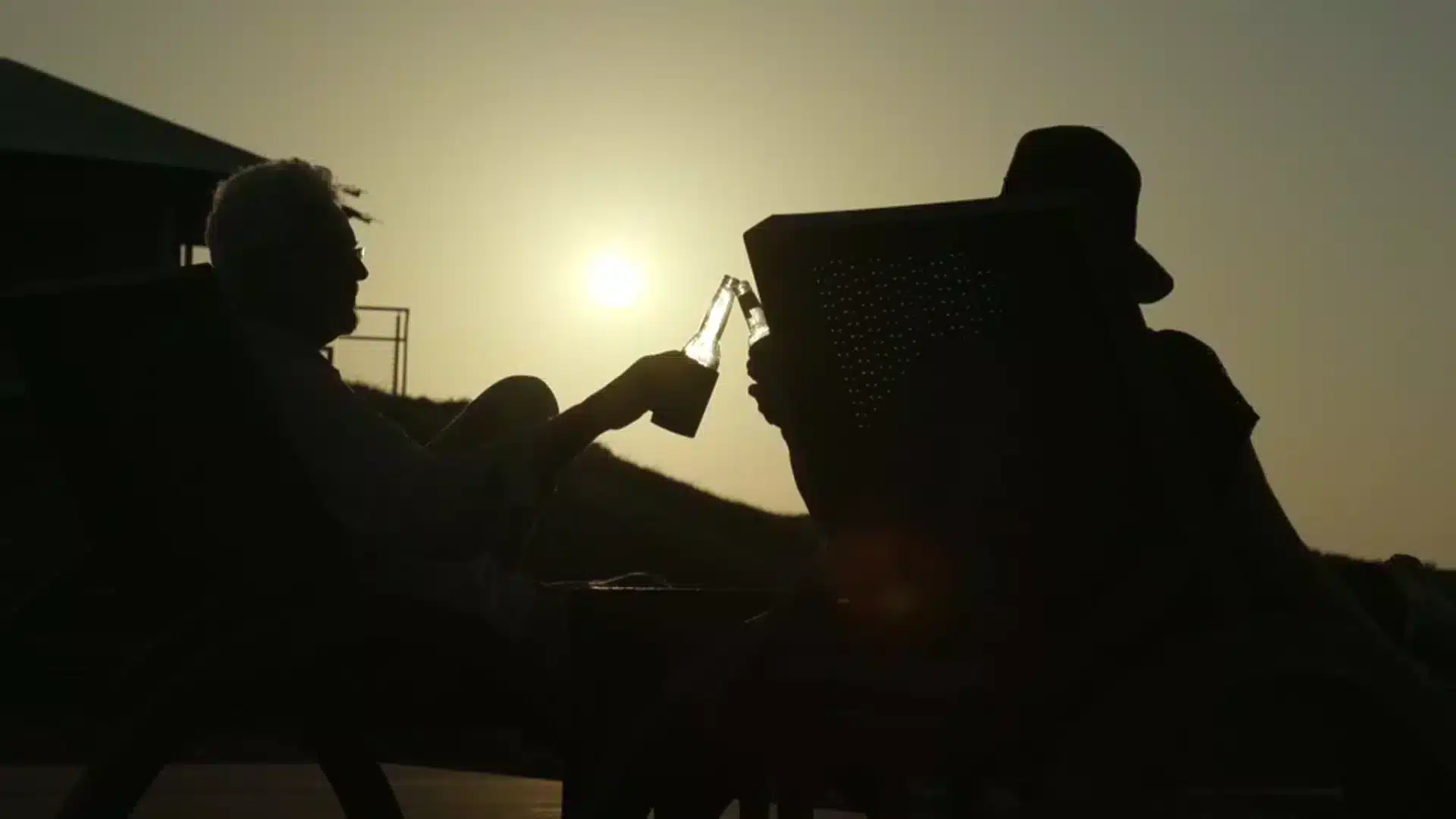
Banubanu’s founders feel like ‘the luckiest small business people in the world’.
Source: SBS
“It’s something that we never imagined possible, and we dreamed about it but you don’t believe it until it’s real and we have made it happen.”
“At the end of a really busy day with guests visiting, my husband and I go up on the deck and have a nice glass of wine and just watch the sun set and jump into the pool.
“And we feel like the luckiest small business people in the world. This is gold, it’s true!”
Indigenous Business Australia will hold its annual Strong Women Strong Business conference in April, in Darwin. More than 350 women are expected to take part, making it the largest gathering of Aboriginal and Torres Strait Islander businesswomen in Australia’s history.

